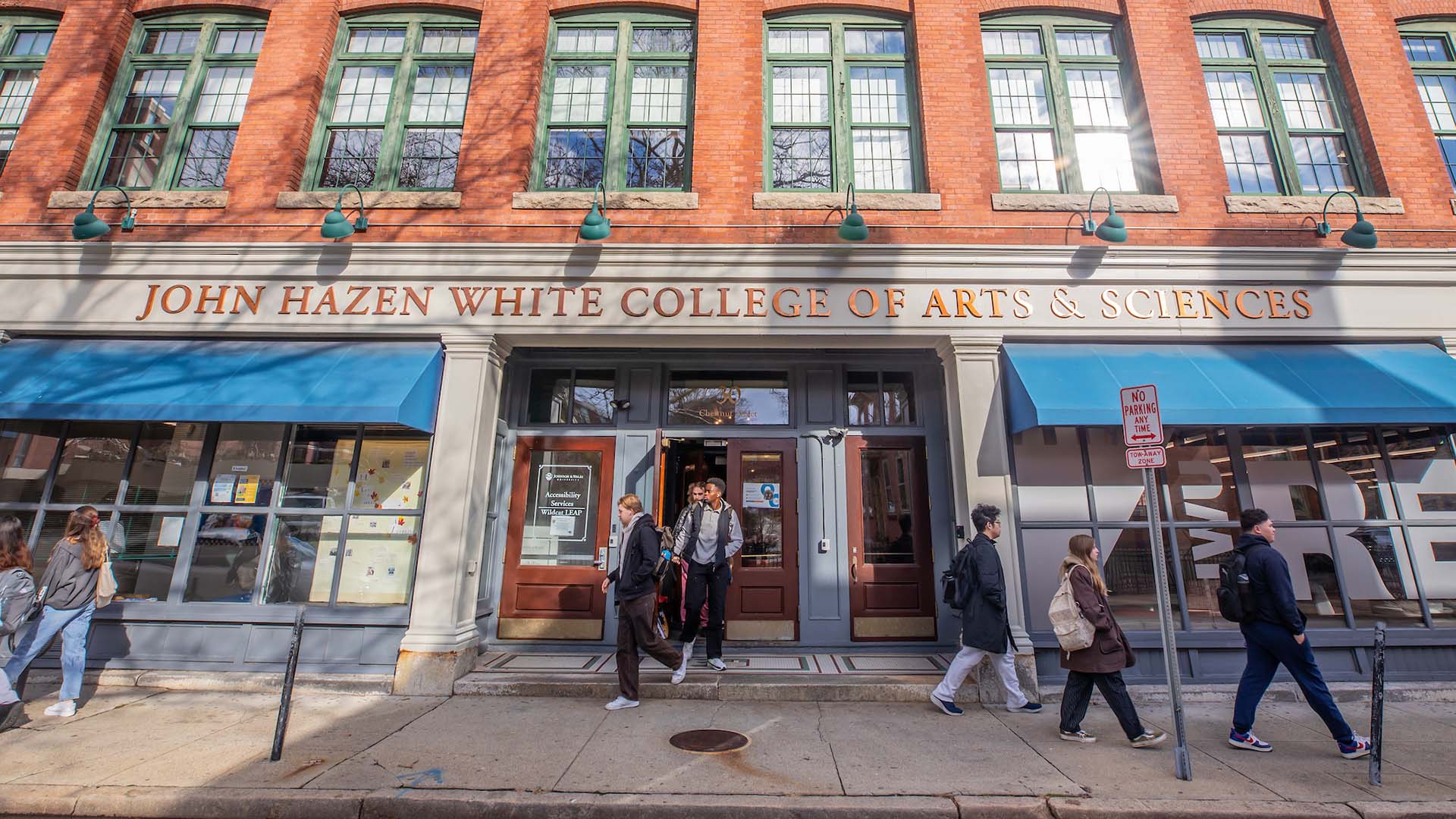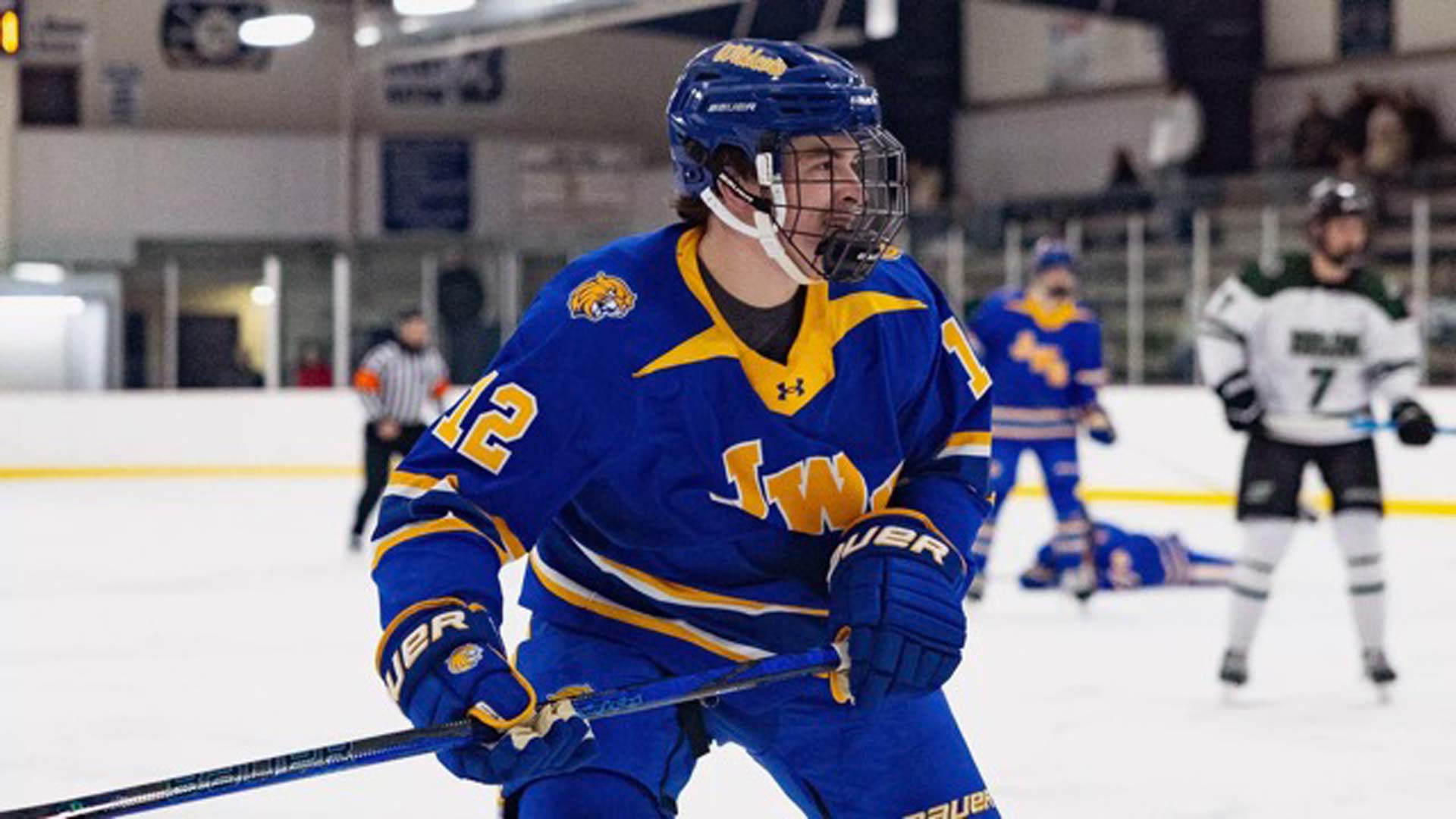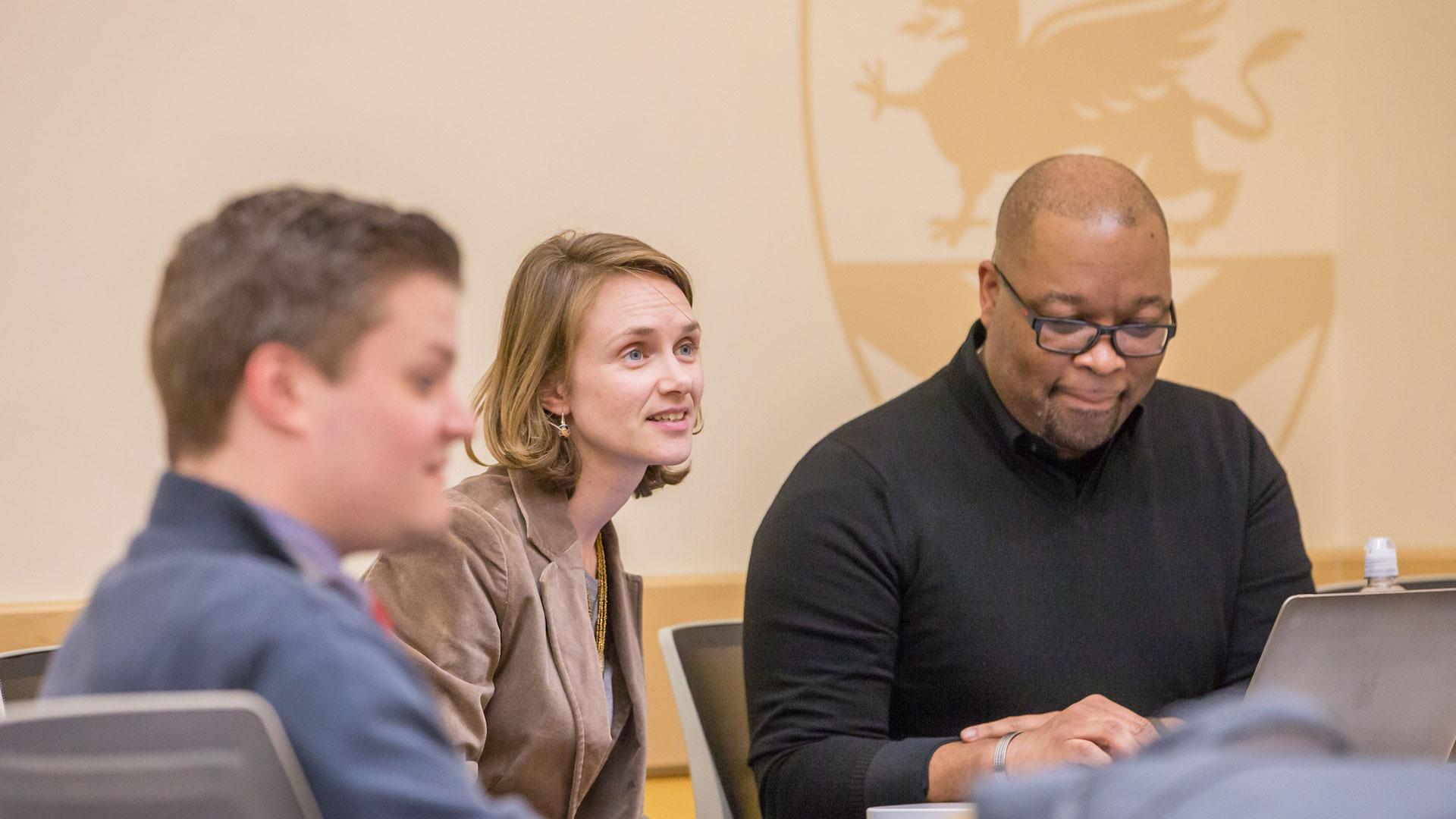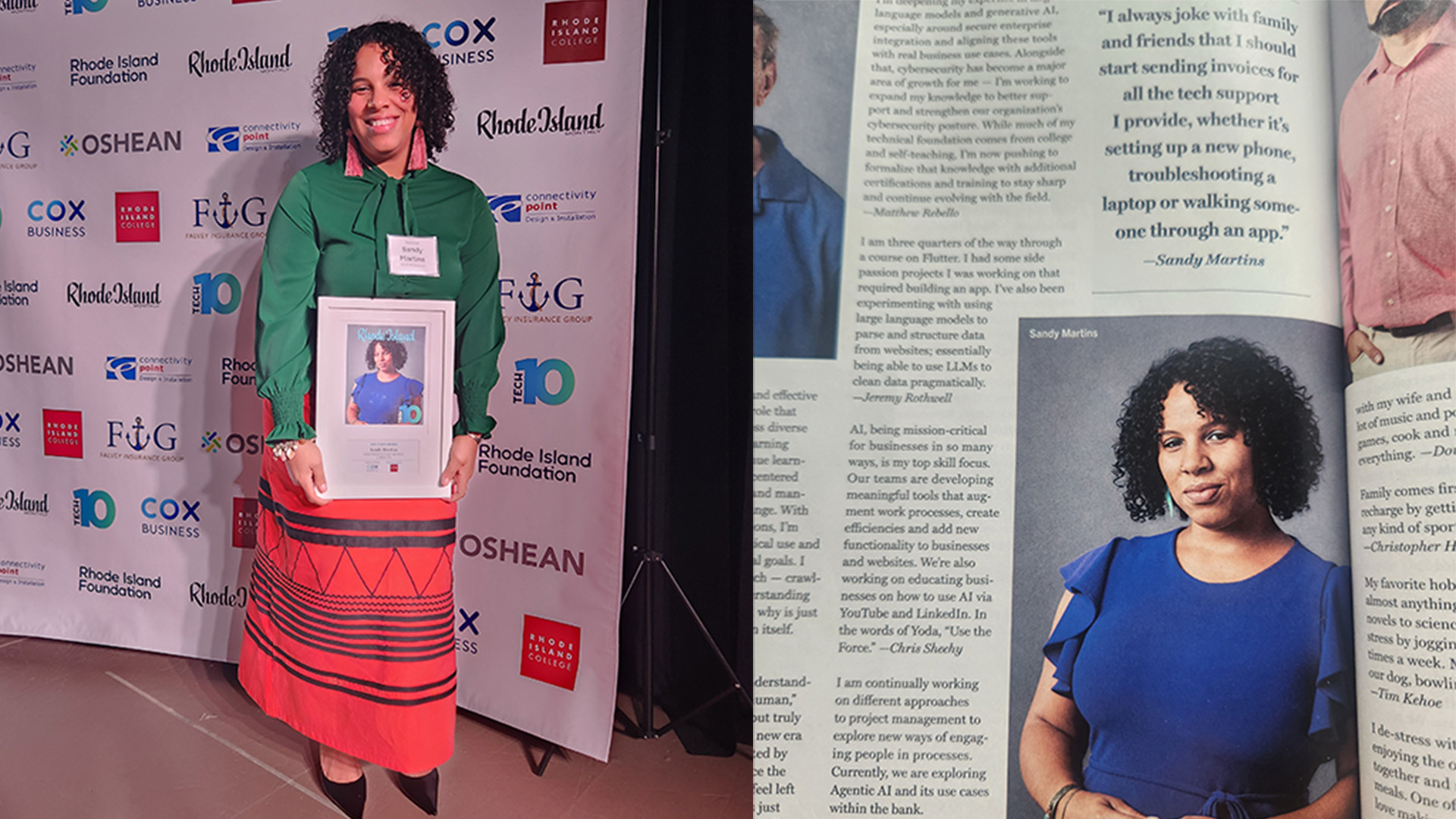Students Experience CSI at JWU
Every year, high school students enroll in Experience Day to sample what it’s like to be a student at Johnson & Wales University. Just in time for National Forensic Science Week, potential future crime fighters gathered on September 22, 2023 for JWU’s Criminal Justice Experience Day.
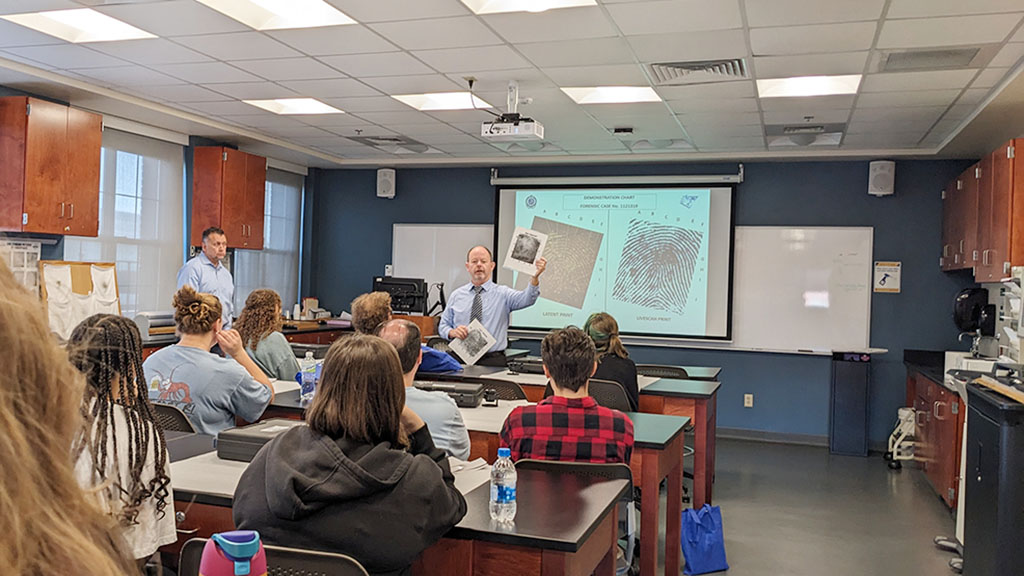
During one portion of the day, after meeting Department Chair Paul Sylvestre, students entered JWU’s Crime Lab, each choosing a paper-topped desk equipped with tools.
Fingerprint Analysis
Professor James Desmarais, a former detective and Providence Police captain who now teaches at JWU, explained the importance of forensics investigators and how fingerprints and DNA can positively identify people present at a crime scene.
"Hundreds of millions of people have had their prints taken over the past 125 years, with no matches at the same point in time in human history — even among twins," Desmarais informed students while showing scans of fingerprints containing loops vs. whorls vs. arches. "Prints at a crime scene are like pieces of a jigsaw puzzle." JWU prepares students in fingerprint analysis to help solve those puzzles.
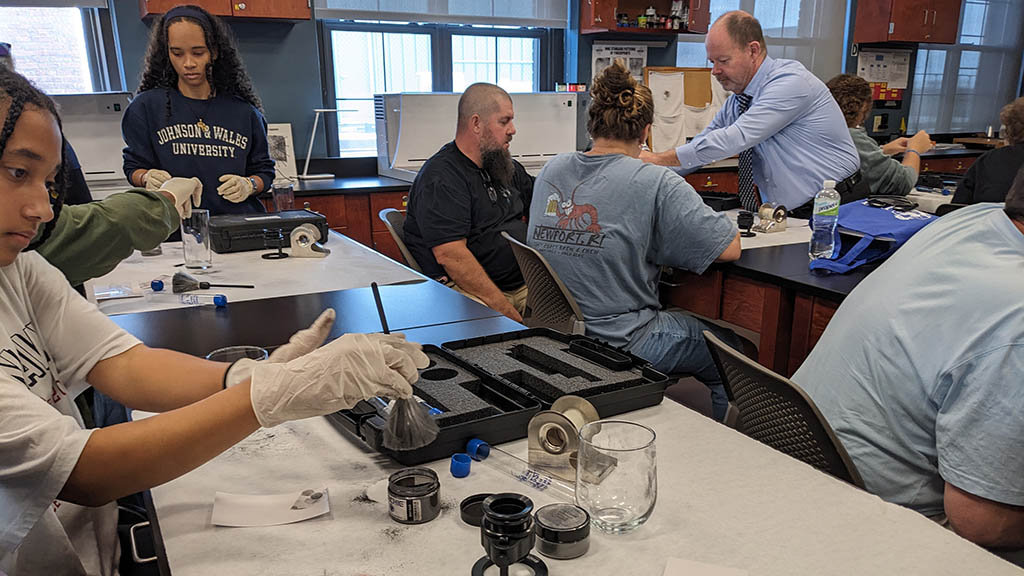
Experience Day attendees each touched a glass, then used graphite powder to reveal a print, which they transferred with tape to a white card and examined with their microscope. "You can get fingerprints in almost any environment, using fuming, dye, and other chemicals,” Desmarais explained as they worked.
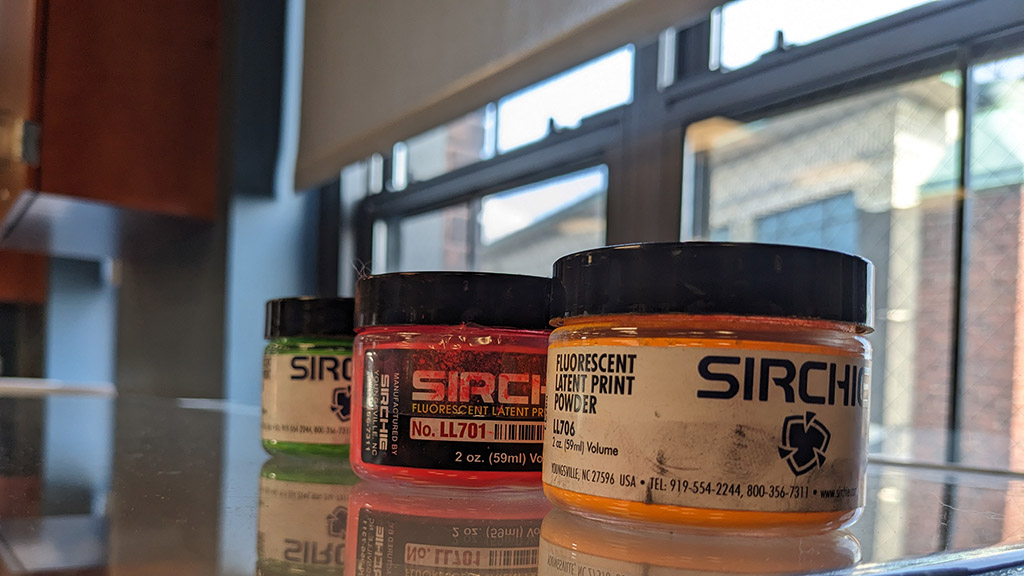
"You can even get fingerprints that have been underwater, he informed students. "They’re hard to see with the naked eye, so you’ll learn to photograph in different lighting and use tools such as Photoshop to help them pop."
Desmarais displayed a student’s prints on screen to show how the lab’s scanner collects and displays them. "When you start seeing them all the time, you’ll start to recognize nuances," he explained.
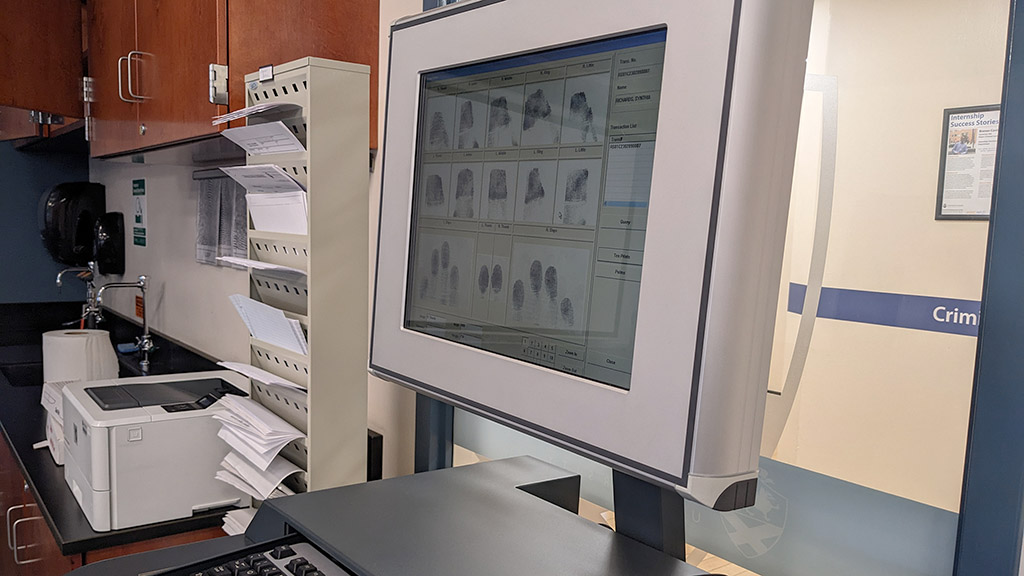
He then led a discussion on DNA and matching, sharing anecdotes of how websites such as Ancestry.com have helped solve cases.
Next, students experimented with using magnetic powder to reveal prints they'd left on their paper. Students exclaimed over how similar the process was to toys they had seen as children, where a character's hair or mustache was made of graphite powder and could be moved around with a magnetic wand.
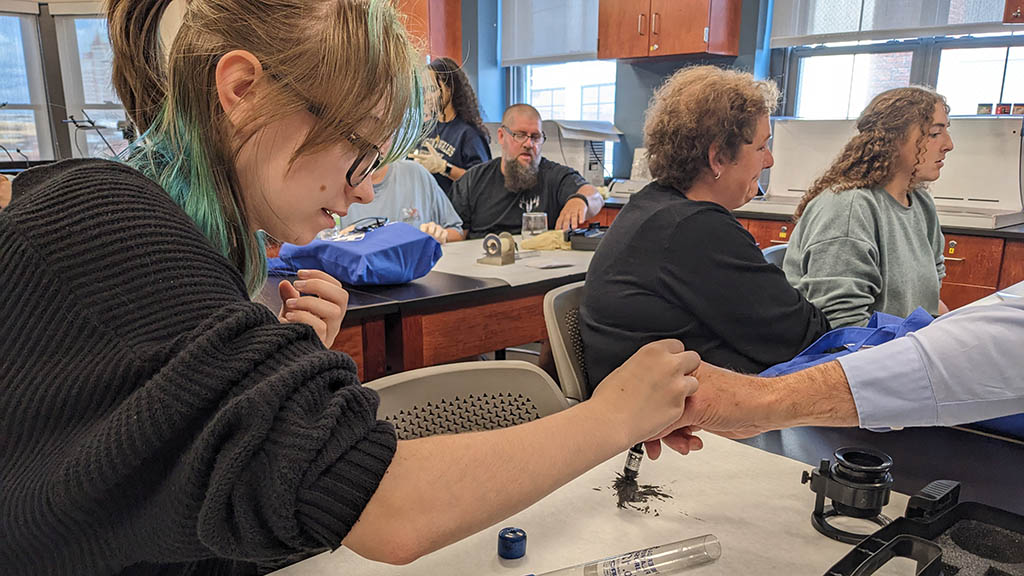
Investigating a Crime Scene
Then, the group headed next door to the Crime Scene Room, whose entrance features real bullet holes in the walls marked with trajectory arrows. Desmarais explained about blood splatter, calculating angles and how to measure everything to place the body, weapon, blood and other scene components.
Student volunteers helped measure and mark distances to set the scene.
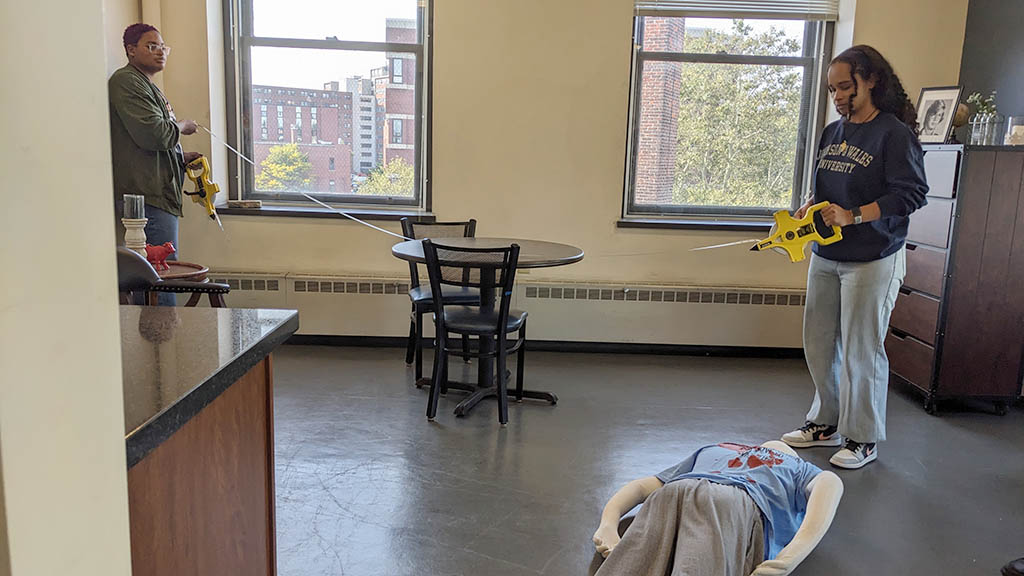
“JWU invested $650,000 making the Crime Lab and Crime Scene Room for students to get hands-on experience, and now I have access to tools I didn’t even have when I was doing real criminal investigating,” said Desmarais. “For instance, JWU students use comparison microscopes to compare bullet casings and project them up on screens.”
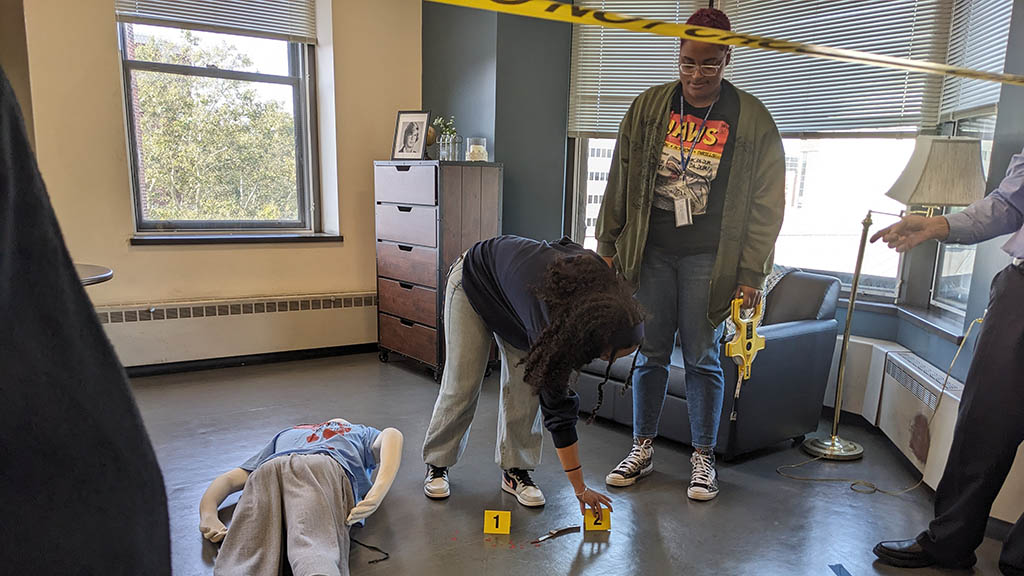
In his 27 years as a detective, Desmarais was at more than 200 crime scenes, and he’s found that capturing everything correctly helps solve crime. "Photography is important; it tells a story and sets the scene for jurors," he explained. "You need to know how to triangulate scenes where you might not have things like telephone poles, corners of buildings or fire hydrants; you can use longitude and latitude to get within a meter of your scene."
"Forensic knowledge of anatomy, or ballistics, or blood spatter, or chemistry for toxicology reports can solve cases," he said. "Every analyst had to learn how to document a crime scene, and they had to be familiar enough with the scene so they could respond confidently while on a witness stand. That’s what JWU can help you do."
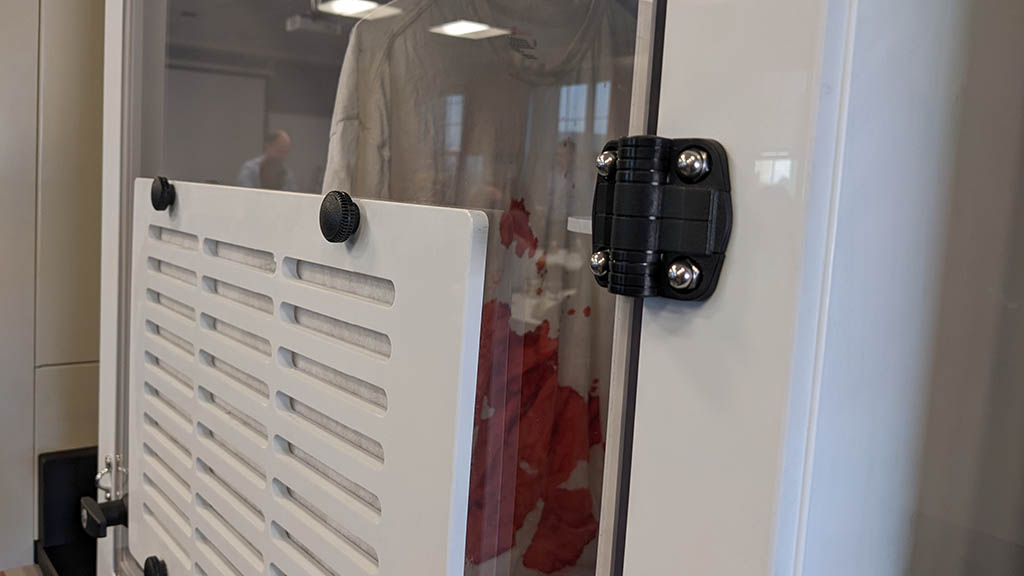
What Can You Do With a Criminal Justice Degree?
With their B.S., JWU students are prepared for a variety of criminal justice and social service jobs, including police officers, federal agents, court administrators and private investigators. Many students go on to earn master’s degrees in fields like chemistry, law and social work to become advanced forensic examiners and criminologists.
Desmarais advised that Criminal Justice majors minor in psychology to better understand why people do what they do. He also shared titles of some of his program alumni, including head of security for a Las Vegas casino.
Not sure if a Criminal Justice major is for you? Read how JWU’s Community Justice minor could better help you understand non-traditional approaches to crime management.
Interested in attending a JWU Experience Day? Multiple options are offered each fall for a taste of what it's like to be in a program. Explore an Experience Day near you at our Providence Campus or Charlotte Campus.
